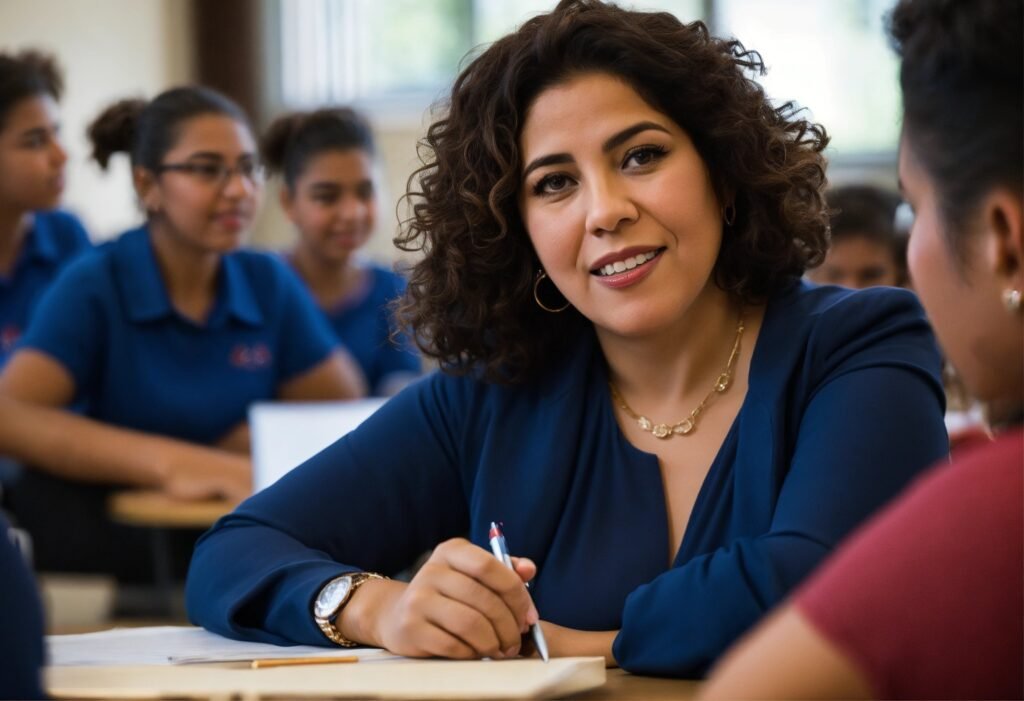Introduction
Starting college is like embarking on a grand adventure. It’s a time filled with excitement, new experiences, and, sometimes, challenges. One of the best ways to navigate this journey is by tapping into the various campus resources designed to support and enrich your college experience. Whether you’re looking for academic support, health services, career guidance, or social connections, your campus has a wealth of resources at your disposal.
Academic Resources
Library Services
Study Areas and Resources
Your campus library is more than just a place to check out books. It’s a hub for academic resources and quiet study areas. Whether you need a silent space to focus or a collaborative environment for group projects, the library caters to all. You’ll find extensive collections of books, academic journals, and digital resources to support your studies.
Research Assistance
Need help with a research paper? Librarians are your go-to experts. They can guide you on how to use databases, find credible sources, and cite them correctly. Many libraries also offer workshops on research skills and tools.
Academic Advising
Course Selection
Navigating course selection can be daunting, but academic advisors are there to help. They assist you in choosing classes that align with your major requirements and personal interests. They also help ensure you meet graduation requirements.
Career Planning
Academic advisors do more than just help with classes. They offer career planning services to help you align your academic pursuits with your long-term career goals. This includes exploring potential career paths, graduate school options, and more.

Tutoring Services
Subject-Specific Tutoring
Struggling with a particular subject? Many campuses offer free or low-cost tutoring services. Subject-specific tutors can help you grasp complex concepts and improve your understanding, which is crucial for your academic success.
Writing Centers
Writing centers are invaluable when you need help with essays, research papers, and other writing assignments. Tutors can assist with everything from brainstorming ideas to refining your final draft, ensuring your writing is clear and compelling.
Health and Wellness Resources
Campus Health Centers
Medical Services
Campus health centers provide a range of medical services, from routine check-ups to urgent care. They often have physicians, nurses, and other healthcare professionals available to address your health needs, ensuring you stay healthy throughout your college journey.
Mental Health Services
Mental health is just as important as physical health. Most campuses offer mental health services, including counseling and therapy. If you’re feeling stressed, anxious, or overwhelmed, don’t hesitate to seek help from these resources.
Counseling Services
Stress Management
College life can be stressful, but counseling services can help you manage it. They offer workshops and individual counseling sessions focused on stress management techniques, helping you stay balanced and focused.
Personal Counseling
Beyond stress, personal counseling services can help with a range of issues, from relationship problems to personal growth. These confidential services provide a safe space to talk through your concerns with a professional.

Fitness Facilities
Gym and Sports Facilities
Staying active is key to maintaining your health and wellness. Campus fitness facilities often include gyms, swimming pools, and sports courts. Whether you enjoy lifting weights, swimming laps, or playing basketball, there’s something for everyone.
Group Fitness Classes
Prefer working out with others? Group fitness classes like yoga, spinning, and Zumba are a great way to stay fit and make new friends. These classes are often included in your tuition or available at a discounted rate for students.
Career and Professional Development
Career Centers
Job Search Assistance
Your campus career center is a treasure trove of resources for job seekers. They offer resume reviews, job search strategies, and interview preparation. Career counselors can help you identify job opportunities that align with your skills and interests.
Internship Opportunities
Internships are a fantastic way to gain experience in your field of interest. Career centers often have connections with employers and can help you find internships that provide valuable hands-on experience and networking opportunities.

Networking Events
Career Fairs
Career fairs are a prime opportunity to meet potential employers and learn about job openings. They often feature a wide range of companies looking to hire students for internships, part-time, and full-time positions.
Alumni Connections
Networking with alumni can open doors to new opportunities. Many career centers facilitate connections with alumni who can offer advice, mentorship, and potentially job leads.
Skill Development Workshops
Resume Building
A strong resume is your ticket to landing job interviews. Workshops on resume building teach you how to highlight your skills and experiences effectively, making you stand out to employers.
Interview Preparation
Interviews can be nerve-wracking, but preparation is key. Career centers often offer mock interviews and workshops on interview techniques to help you practice and improve your performance.
Student Life and Organizations
Student Clubs and Organizations
Academic and Professional Groups
Joining academic and professional clubs can enhance your knowledge and provide networking opportunities within your field of study. These groups often host events, guest lectures, and conferences.
Social and Cultural Organizations
College is also about having fun and exploring new interests. Social and cultural organizations offer a chance to meet people, learn about different cultures, and engage in various activities.

Greek Life
Fraternities and Sororities
Greek life can be a significant part of the college experience. Fraternities and sororities offer a sense of community, leadership opportunities, and lifelong friendships.
Philanthropy and Social Events
Many Greek organizations are involved in philanthropy, raising funds for charitable causes and organizing community service events. They also host social events, providing a balance between giving back and having fun.
Campus Events
Concerts and Performances
Campus events, such as concerts, theater performances, and comedy shows, offer entertainment and a break from academic pressures. These events are often free or discounted for students.
Guest Lectures and Workshops
Guest lectures and workshops provide opportunities to learn from experts in various fields. These events can inspire you and provide new perspectives on your studies and future careers.
Housing and Dining Services
On-Campus Housing
Dormitories and Apartments
Living on campus can enhance your college experience by keeping you close to classes and campus activities. Dormitories and campus apartments offer a range of living options, often with amenities and support services.
Residential Life Programs
Residential life programs aim to create a vibrant living community. They offer events, support services, and leadership opportunities, helping you make the most of your on-campus living experience.

Off-Campus Housing Assistance
Finding Accommodations
If you prefer living off-campus, many universities provide resources to help you find suitable accommodations. They often have listings of available rentals and can offer advice on the best neighborhoods.
Renting Tips
Renting off-campus comes with its challenges. Universities often provide workshops and resources on renting tips, covering topics like lease agreements, tenant rights, and budgeting.
Dining Services
Meal Plans
Campus dining services offer meal plans that can be convenient and cost-effective. These plans often include access to dining halls, cafes, and other food services on campus.
Campus Cafeterias and Restaurants
Explore the variety of food options available on campus. From dining halls to food courts and specialty cafes, there’s something to suit every palate and dietary need.
Financial Resources
Financial Aid Office
Scholarships and Grants
The financial aid office is your go-to resource for scholarships and grants. They can help you find and apply for financial aid that doesn’t need to be repaid, reducing the burden of tuition costs.
Loan Management
If you have student loans, the financial aid office can provide guidance on managing them. They offer advice on repayment options, consolidation, and budgeting to ensure you stay on track.

Student Employment
On-Campus Jobs
On-campus jobs are a great way to earn money while staying close to your studies. These jobs often have flexible hours and understand the demands of your academic schedule.
Work-Study Programs
Work-study programs provide part-time employment opportunities for students with financial need. These programs help you gain work experience and earn money to support your education.
Budgeting and Financial Planning
Budget Workshops
Managing your finances is crucial during college. Budget workshops teach you how to create and stick to a budget, manage expenses, and save for the future.
Personal Finance Tools
Many universities offer access to personal finance tools and resources. These tools can help you track your spending, set financial goals, and make informed financial decisions.
Diversity and Inclusion Resources
Multicultural Centers
Cultural Events and Activities
Multicultural centers celebrate diversity and promote inclusion. They host cultural events, activities, and workshops that enrich the campus community and foster understanding.
Support Services
These centers offer support services for students from diverse backgrounds. Whether you need academic assistance, personal counseling, or a safe space to discuss your experiences, multicultural centers are there to help.
LGBTQ+ Resources
Support Groups
LGBTQ+ resources on campus provide support groups where you can connect with others, share experiences, and find a sense of community. These groups offer a safe and welcoming environment.
Events and Advocacy
Many campuses have LGBTQ+ centers that organize events and advocacy initiatives. These activities promote awareness, acceptance, and equality, helping to create an inclusive campus culture.
Disability Services
Academic Accommodations
If you have a disability, campus disability services can help you obtain academic accommodations. These might include extended time on tests, note-taking assistance, or adaptive technology.
Accessibility Resources
Ensuring accessibility is a priority for universities. Disability services work to provide resources and support that ensure all students can fully participate in campus life.

Conclusion
Your college experience is what you make of it, and utilizing campus resources is key to making it a fulfilling and successful journey. From academic support to health services, career development, and social connections, there’s a wealth of resources available to help you thrive. Don’t hesitate to explore and take advantage of everything your campus has to offer.
FAQs
How can I find out about all the resources available on my campus?
Start by visiting your university’s website or student services office. They often have detailed information on available resources and how to access them.
Are campus resources available to all students?
Most campus resources are available to all students, though some may have specific eligibility requirements. Check with each resource for details.
How can I get involved in student organizations?
Attend club fairs, check online directories, and reach out to student activities offices to learn about and join student organizations.
What should I do if I need financial assistance?
Visit your campus financial aid office. They can guide you through the process of applying for scholarships, grants, and loans.
How do I access mental health services on campus?
Contact your campus health center or counseling services office to learn about available mental health services and how to schedule an appointment.
